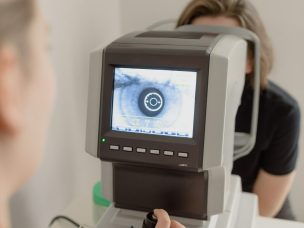During the ongoing coronavirus pandemic, some at-risk patients with wet age-related macular degeneration (AMD) have been required to extend their treatment intervals to reduce the risk of coronavirus exposure. This study involved an analysis of patients with wet AMD that underwent unplanned treatment interval extensions. The study’s goal was to understand the effects of these extended treatment intervals.
This study identified patients with active wet AMD whose injection interval was extended from 6 to 7 weeks or beyond. The Fight Retinal Blindness! (FRB!) registry was used to gather data. Of the 9,602 patient eyes in the registry, 1,559, or 16%, were identified that fit these criteria. The eyes in question were further divided into four groups based on the length of the interval, with the vast majority falling within ≤6 weeks and ≤7-9 weeks.
Patients that extended their interval past 12 weeks exhibited a significant loss in visual acuity compared with those that did not extend their treatment interval. Other interval groups also demonstrated a loss in visual acuity to some extent.
The researchers concluded that increasing the treatment interval beyond 12 weeks can result in short-term vision loss in patients with wet AMD. They note that if physicians must increase their patients’ treatment interval, this upper limit should not be exceeded [1].
Source:
[1] Teo, K. Y. C., Nguyen, V., Barthelmes, D., Arnold, J. J., Gillies, M. C., & Cheung, C. M. G. (2020). Extended intervals for wet AMD patients with high retreatment needs: informing the risk during COVID-19, data from real-world evidence. Eye. https://doi.org/10.1038/s41433-020-01315-x










